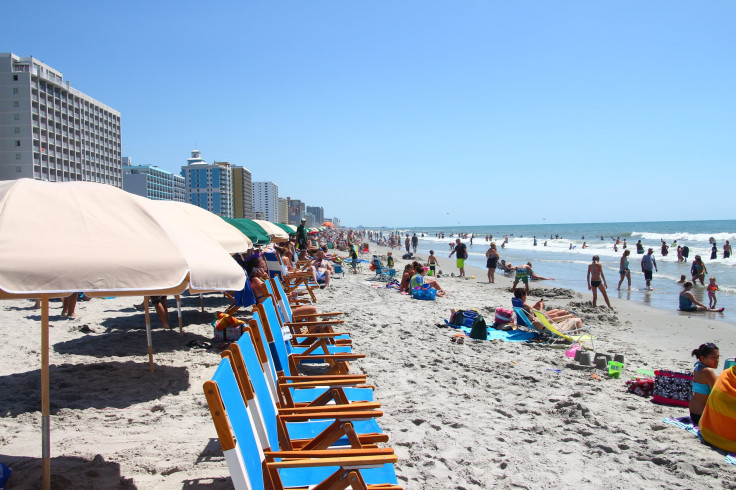Coronavirus Second Wave: 17 Teens Test Positive For COVID-19 After Myrtle Beach Trip

KEY POINTS
- 17 teenagers and two adults returning to Ohio from Myrtle Beach tested positive for COVID-19
- Belmont County in Ohio had less than two cases a day for more than a week until this spike
- Myrtle Beach is now the fourth-highest area with new infection rates in the U.S.
Some 17 teens from Ohio Valley tested positive for COVID-19 after they visited Myrtle Beach in South Carolina and returned to their state on the weekend of June 13, the Belmont County Health Department revealed.
The trip with over 100 students, who come from different schools in Ohio, was reportedly not a school event, according to CNN. Two adults, who had contact with the students, also tested positive.
All those who tested positive are under quarantine at home and no one has been hospitalized so far. But Belmont Health Department Deputy Commissioner Robert Sproul said that they are expecting more cases as contact tracing continues.
For more than a week, Belmont County had reduced its COVID-19 cases to fewer than two a day as residents followed the coronavirus restrictions imposed in the last three months.
"We've been quarantined for so long, the state had a travel ban in place, and our numbers were weakened," Sproul said.
Acknowledging that, year after year, high school kids go to Myrtle Beach for the summer, the official said that they knew the students “would travel as soon as they could.” Sproul said he was hoping the kids would be responsible enough to observe social distancing or wear a face mask.
Myrtle Beach has become a coronavirus hotspot with over 1,600 recorded cases at the start of June. It is now the fourth-highest area with new infection rates in the U.S., after Arizona, Arkansas and Alabama, raising concerns of a coronavirus second wave.
Meanwhile, Sproul cautioned those planning to visit Myrtle Beach for their summer vacation. He advised the public to reconsider their plans or take precautions if they are visiting a hotspot.
Dr. Stacy Meeks, a pediatrician from Belmont County, said that teens and young adults are likely to have less severe symptoms of COVID-19 but they will still need to exercise care and caution to protect the vulnerable if they're not canceling trips.
"There's not really a forced quarantine at this point for anyone returning from beaches as of before, but if they want to just stay away from the more at-risk population, family members like grandparents or immuno-compromised family members," the doctor said.
Meeks also said that children should still stay active in the summer. But as a safety measure against the virus, they need reminded to use face covering or cover their mouth when they cough, sneeze in the elbow, and frequently wash their hands.
© Copyright IBTimes 2025. All rights reserved.





















